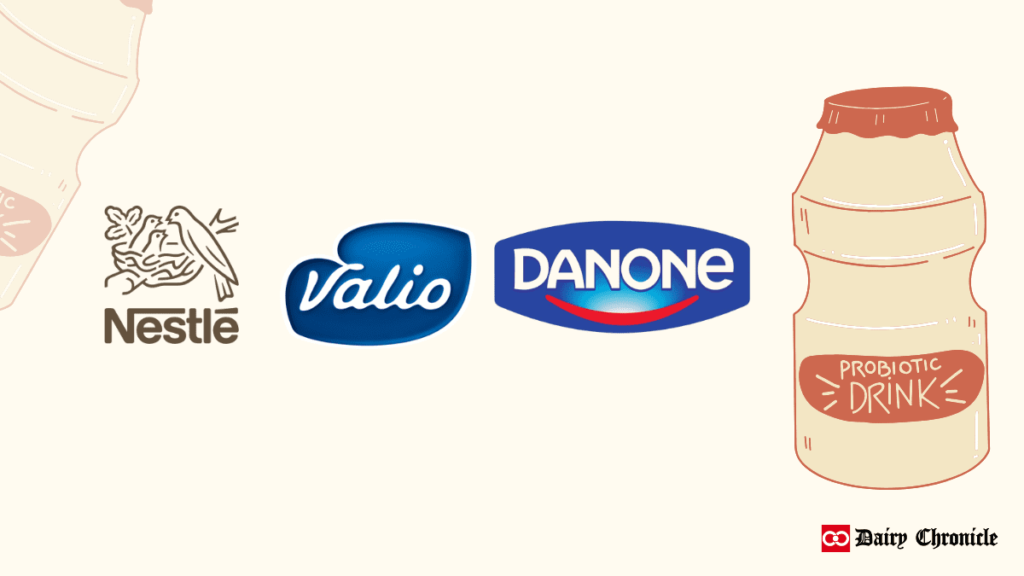Danone, Nestlé, and Valio are leading the expanding global probiotic supplements market, driven by increasing consumer health awareness. The sector is characterized by diverse product types and applications, with notable growth in key regions. COVID-19 has accelerated demand, influencing market dynamics and prompting companies to innovate and adapt.
The global probiotic supplements market is experiencing robust growth, driven by rising consumer interest in digestive health and wellness. This burgeoning sector is characterized by increasing investments from major players such as Danone, Nestlé, and Valio. These industry leaders are focusing on innovation and strategic expansion to capture a larger share of the market.
Key Players and Market Trends
Danone is leveraging its extensive research capabilities and existing portfolio of dairy products to enhance its probiotic supplement offerings. The company’s commitment to innovation is evident in its development of advanced probiotic strains and functional products designed to meet diverse consumer needs.
Nestlé is also a significant player in the market, with a broad range of probiotic supplements that cater to different age groups and health requirements. Nestlé’s focus on scientific research and partnerships with health professionals helps in creating effective and evidence-based products.
Valio, known for its high-quality dairy products, is expanding its probiotic supplement range to include functional foods and specialized formulations. The company’s strong emphasis on quality and sustainability positions it favorably in a competitive landscape.
Other notable players include Danisco (Dupont), which offers a range of probiotic ingredients and formulations; Lifeway Foods Incorporation, known for its kefir-based probiotic products; Morinaga Milk Industry, which focuses on research-driven probiotic solutions; Mother Dairy, and Yakult Honsha, both of which are renowned for their extensive probiotic product lines.
Market Segmentation
The probiotic supplements market is segmented into several categories:
- By Type:
- Functional Foods: Includes yoghurt, kefir, and other foods enhanced with probiotics for added health benefits.
- Dietary Supplements: Encompasses tablets, capsules, powders, and liquids designed to supplement the diet with probiotics.
- Specialty Nutrients: Targets specific health conditions with specialised probiotic formulations.
- Other: Includes miscellaneous probiotic products not categorised elsewhere, such as probiotic-enriched snacks.
- By Application:
- Children: Formulated to support digestive health and immune function in paediatric populations.
- Adults: Designed for general wellness and to address digestive and immune health issues.
- The Aged: Products aimed at supporting gut health and overall well-being in older adults, often focusing on digestive issues and immune support.
Regional Analysis
The probiotic supplements market spans several key regions, each with distinct growth dynamics:
- North America: The United States and Canada are leading markets due to high consumer awareness and a well-established infrastructure for probiotic products. The region is characterized by a high level of product innovation and regulatory support for health claims.
- Asia-Pacific: This region is witnessing significant growth driven by increasing health consciousness and rising disposable incomes. Key markets include China, India, Japan, and South Korea, where traditional fermented foods and probiotics are gaining popularity.
- Europe: Countries such as Germany, France, the UK, Italy, and Spain are experiencing steady growth in probiotic supplements. The European market benefits from strong regulatory frameworks and a growing demand for health-enhancing products.
- Central & South America: Brazil and Argentina are emerging markets where consumer awareness about probiotic benefits is increasing. The region is seeing a gradual expansion in the availability of probiotic products.
- Middle East & Africa: This region is expanding as consumer interest in health and wellness products grows. Key markets include Saudi Arabia, Turkey, and other countries where awareness and availability of probiotic supplements are on the rise.
Impact of COVID-19 on the Market
The COVID-19 pandemic has significantly influenced the probiotic supplements market. The increased focus on immune health and overall well-being has driven demand for probiotic products. Companies have adapted by enhancing their online sales channels and addressing new consumer health priorities. Regulatory changes and market disruptions caused by the pandemic have prompted companies to innovate and respond swiftly to evolving consumer needs.
Future Outlook
The probiotic supplements market is poised for continued growth, supported by advancements in scientific research and increasing consumer demand. Companies are expected to focus on product innovation, expanding their product lines, and forming strategic partnerships to stay competitive. As consumer preferences evolve and new health trends emerge, the market will likely see ongoing expansion and diversification.
The probiotic supplements market is a dynamic and rapidly evolving sector, with leading players such as Danone, Nestlé, and Valio at the forefront. As the industry adapts to changing consumer demands and market conditions, companies must continue to innovate and enhance their offerings. The emphasis on health and wellness is expected to sustain market growth, presenting opportunities for both established and emerging players in the probiotic supplements sector.



